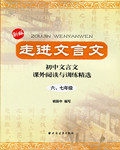题目内容
.
71 It is divided into two types: short term memory and long term memory. Short term memory helps the brain to remember the information from a few seconds to a few minutes, for example, searching a phone number in the phone directory. This type of information is not stored for a long time, and slips from the brain. 72
73 There is no exact definition of brain exercises. The key to brain exercises is to stimulate(刺激) the gray cells of our mind. For example, trying out different problem solving exercises can be a good practice for improving the analytical skills of brain. 74 If you regularly exercise it, you will develop a good body, or else you will have an unfit body, and thus, our brain needs exercises regularly. Here are some memory improvement tips for adults:
●Regular exercises help to keep away diseases that are harmful to the memory. Besides, regular exercising improves the feeling of well-being and improves blood circulation to the brain.
●Don't be stressed, as stress holds back the ability of the mind to concentrate. A stress-free mind will collect and store more information that a stressed mind, so avoid being over-stressed. But in modern times people have great pressure from work and life. 75 . Sleep is necessary for keeping the mind and body fit and the side effects of lack of sleep include a lack of concentration.
E.Not all people have the power to recite so many things at a time.
F.Long term memory, on the other hand, is the memory where we make conscious efforts to keep the information for a long time.
G.Brain exercises are one of the simplest ways of improving memory power.
71 It is divided into two types: short term memory and long term memory. Short term memory helps the brain to remember the information from a few seconds to a few minutes, for example, searching a phone number in the phone directory. This type of information is not stored for a long time, and slips from the brain. 72
73 There is no exact definition of brain exercises. The key to brain exercises is to stimulate(刺激) the gray cells of our mind. For example, trying out different problem solving exercises can be a good practice for improving the analytical skills of brain. 74 If you regularly exercise it, you will develop a good body, or else you will have an unfit body, and thus, our brain needs exercises regularly. Here are some memory improvement tips for adults:
●Regular exercises help to keep away diseases that are harmful to the memory. Besides, regular exercising improves the feeling of well-being and improves blood circulation to the brain.
●Don't be stressed, as stress holds back the ability of the mind to concentrate. A stress-free mind will collect and store more information that a stressed mind, so avoid being over-stressed. But in modern times people have great pressure from work and life. 75 . Sleep is necessary for keeping the mind and body fit and the side effects of lack of sleep include a lack of concentration.
| A.Ask your doctors for advice on memory. |
| B.Developing good sleeping habits helps a lot. |
| C.The memory is just like our body in some way. |
| D.Memory is the remembering of any information taken in by the brain. |
F.Long term memory, on the other hand, is the memory where we make conscious efforts to keep the information for a long time.
G.Brain exercises are one of the simplest ways of improving memory power.
71---75 DFGCB
略

练习册系列答案
 走进文言文系列答案
走进文言文系列答案
相关题目

 ard that his nose bled
ard that his nose bled he passage that the man__________.
he passage that the man__________.  A. his mother's injury before he was born
A. his mother's injury before he was born